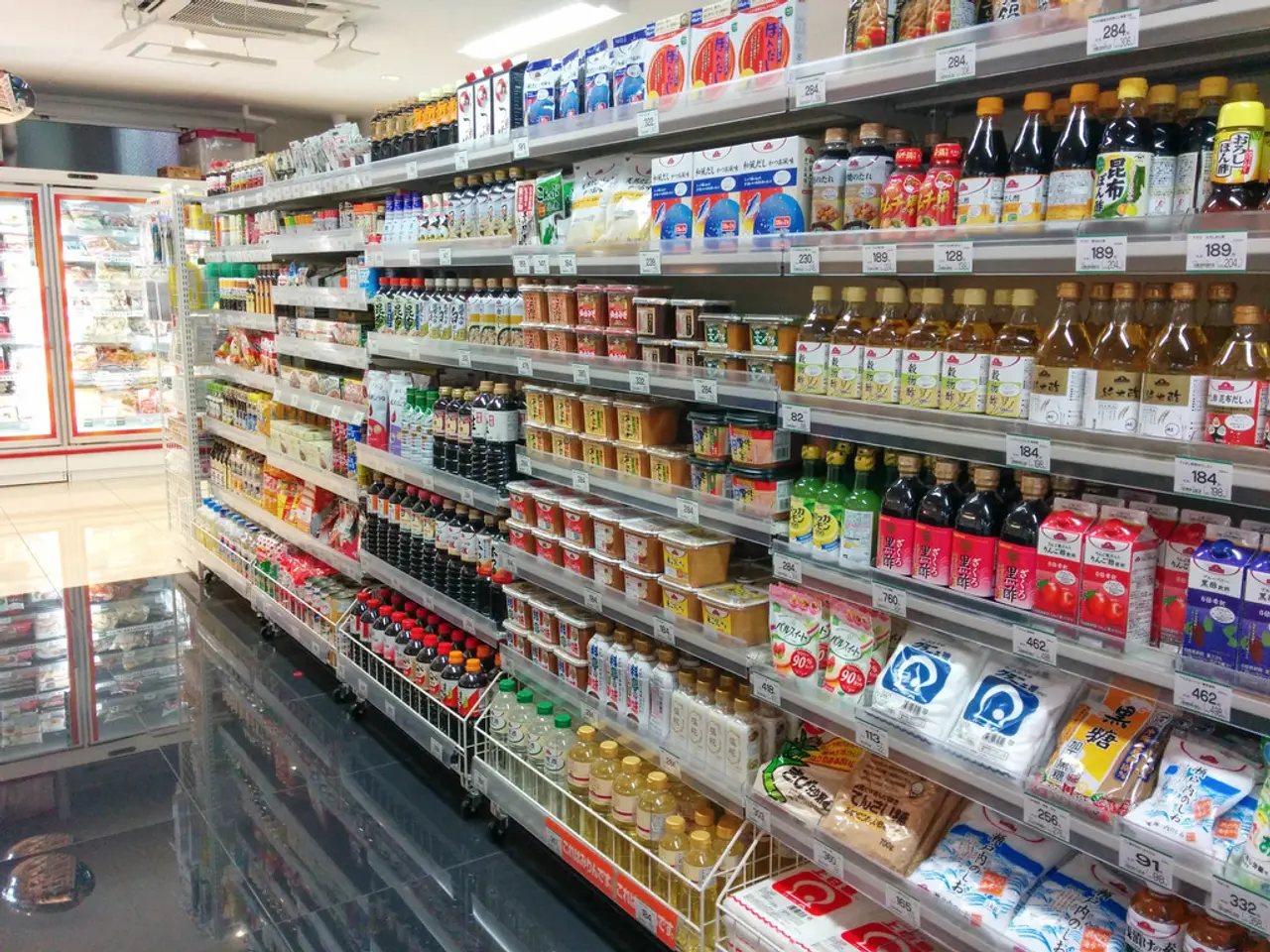Custom tariffs potentially cause clients to reevaluate their supply chain financing strategies: remarks from Wells Fargo executive
In the ever-evolving landscape of U.S. trade policy, businesses are bracing for potential changes that could persist for some time. Recently, President Donald Trump paused the implementation of "reciprocal" tariffs for 90 days, with the exception of those imposed on China. This pause, however, has not alleviated the uncertainty surrounding tariffs, making reaction plans difficult for many companies.
One such company grappling with this fluid situation is Walmart, whose CEO, Doug McMillon, described the current environment as "very fluid" with numerous "variables." To cope with the higher-than-expected tariffs announced on April 2, flexible financing will be essential to businesses, and supply chain financing provided by banks like Wells Fargo could play a crucial role.
Supply chain financing helps businesses manage increased costs from tariff volatility by providing additional working capital to absorb sudden tariff-related expenses, maintain inventory levels, and avoid production disruptions. It bridges cash flow gaps, allowing companies to continue operations smoothly while they adjust sourcing strategies or negotiate supplier terms amid rising tariff costs.
Large companies are employing a variety of strategic approaches to handle additional tariff costs. One such strategy is optimizing supply chain design and sourcing by diversifying supplier bases or shifting sourcing to countries with lower or no tariffs, often leveraging free trade agreements and free trade zones to reduce tariff burdens.
Tax-optimized supply chain planning is another strategy, involving re-evaluating intercompany pricing policies and optimizing country of origin labeling to minimize duties legally. Enhancing real-time finance and procurement processes through digitization and automation also allows companies to gain timely insights into landed costs and respond faster to tariff changes.
Some manufacturers are redesigning products to use alternative materials or components that are subject to lower tariffs, reducing long-term exposure to tariff-related cost increases. Companies may also use loans or credit lines to stockpile inventory before tariff increases or to sustain payments while negotiating supplier diversification, avoiding immediate price hikes that could lead to customer loss.
Wells Fargo, with its focus on traditional trade products such as import and export letters of credit and supply chain financing, has about 70 employees globally in Jeremy Jansen's division, serving large corporate companies. Jansen, the managing director of supply chain finance at Wells Fargo, stated that there's more interest from clients to engage in discussions about a litany of solutions. The combination of supply chain finance and proactive tariff mitigation strategies enables companies to maintain margins, stabilize operations, and gain competitive advantages despite tariff volatility.
- As the trade policy landscape continues to shift in the United States, discussions about finance and general-news have become increasingly prevalent, with businesses such as Walmart needing flexible financing solutions like supply chain financing from banks like Wells Fargo to absorb sudden tariff-related expenses.
- In the face of rising tariffs and increasing political uncertainty, companies like Walmart are employing various strategies to reduce their exposure to tariff-related cost increases, such as optimizing supply chain planning, redesigning products, and using loans or credit lines to secure inventory, while also engaging in discussions with financial institutions like Wells Fargo for tariff mitigation strategies that, when combined with supply chain finance, can help them maintain margins, stabilize operations, and gain competitive advantages.




